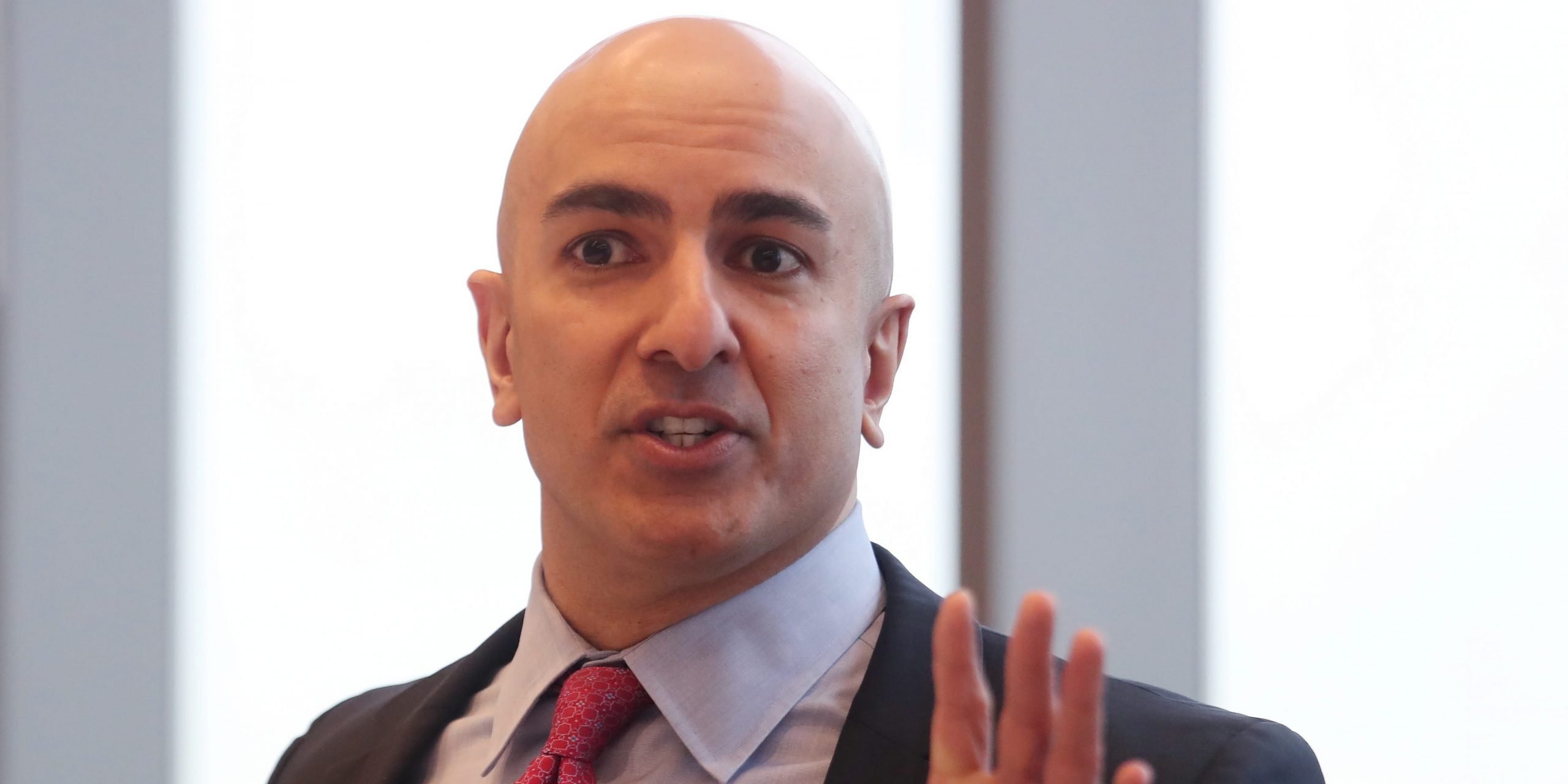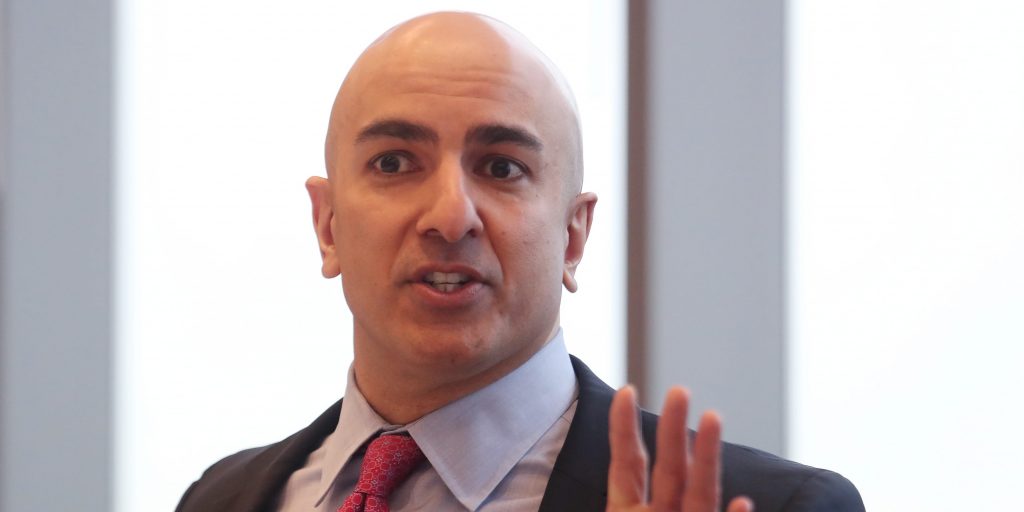
Reuters
- The Federal Reserve shouldn't respond too quickly to inflationary pressures that will fade, said Minneapolis Fed chief Neel Kashkari.
- The Fed "need not overreact" to high inflation readings even though "the pain is real" for Americans, he said.
- Kashkari is concerned about long-term damage to the economy if the Fed overreaches in its response to inflation.
Consumers will be dealing with high inflation during a portion of 2022, but the Federal Reserve but shouldn't respond too quickly to conditions that will soon fade, Minneapolis Federal Reserve President Neel Kashkari said Sunday.
"The math suggests we're probably going to see somewhat higher readings over the next few months before they likely start to taper off," he told CBS's "Face The Nation" program.
A surge in demand from consumers who've received government stimulus money alongside widespread supply-chain disruptions are driving prices up, he said.
"But my view is we also need to not overreact to some of these temporary factors, even though the pain is real. You know, the Federal Reserve, when we adjust monetary policy, it acts with a lag. And so if we overreact to a short-term price increase, that can set the economy back over the long term," he said.
Government data released last week showed US consumer price inflation in October soared to 6.2% from a year ago, the highest rate since 1990. The climb was paced by rising energy prices, with fuel oil prices jumping 12.3% through the month. CBS noted to Kashkari he has said he doesn't expect inflation to return to a 2% rate until 2024.
The Fed has "taken the appropriate steps" in beginning later this month to reduce the amount of asset purchases it makes monthly, with the tapering process lasting about six months, he said.
"That's the first step in reducing monetary policy boost that we're providing the economy," he said. "And over the next three, six, nine months, I think we're going to get a lot more data on both the demand side and the supply side to get a better reading of where the economy is headed."
The Fed since last year has been buying at least $80 billion in Treasurys and $40 billion in mortgage-backed securities each month to aid the economy through the pandemic. This month, purchases of Treasurys will decline by $10 billion a month and by $5 billion for MBS.
Investors have already started pricing in expectations for the Federal Reserve to begin raising its benchmark interest rates from the zero range in 2022.

